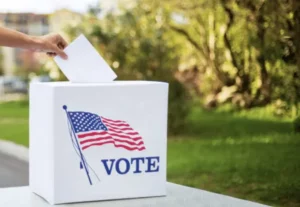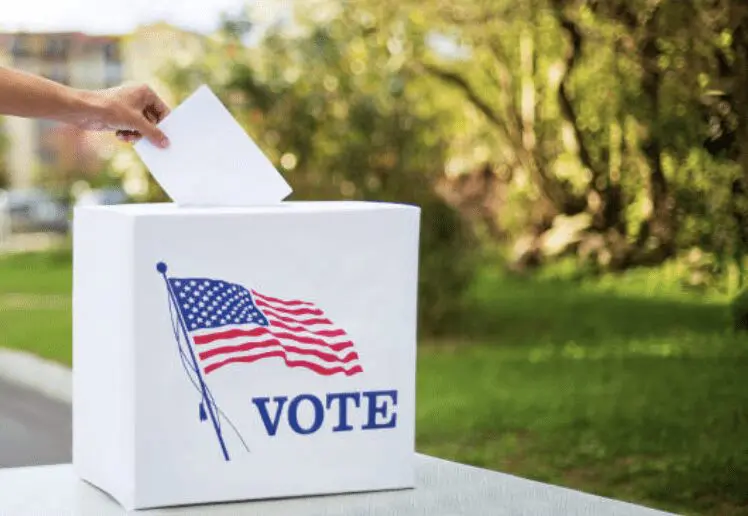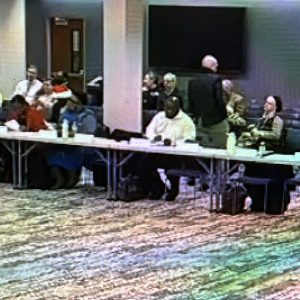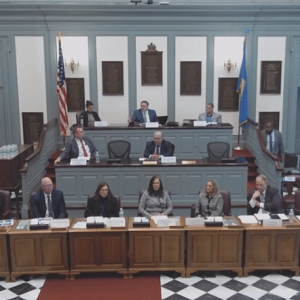
Delaware House Republicans blocked a bill that would have changed the state constitution to offer more ways to vote.
Delaware House of Representatives Republicans blocked an attempt to alter the constitution’s rules on absentee voting by refusing to vote on it.
Senate Bill 3, sponsored by Sen. Darius Brown, D-Wilmington, would have eliminated limitations imposed in the state constitution about when an individual could vote. It also would allow the General Assembly to set rules governing absentee ballots and early voting.
Supporters say it will allow more people to vote in elections by offering options other than showing up in person on election day and removing a requirement that only certain excuses could be used for voting absentee.
Republicans maintain that it will encourage illegal voting and allow the majority party (currently not theirs) “carte blanche” power to change rules on a whim, as Rep. Lyndon Yearick, R-Camden said Thursday.
Absentee and early voting was a hot topic in the national and state elections of 2020, exacerbated by COVID 19 restrictions.
The issues became even more heated when a Delaware Supreme Court struck down a previous attempt at changing absentee voting, saying it could not stand because it violated the constitution.
Absentee change rules
Attempts to change the Delaware constitution have lots of strings attached:
- They have to be passed by a 2/3 majority in the state House or Senate. The Senate has enough Democrats to vote that through with a GOP vote. The House does not. On Thursday evening, the bill only got 16 yes votes.
- Any constitutional amendment has to be passed in two different sessions. Each General Assembly lasts two sessions, or two years. It’s currently at the end of its 152nd session, which started in January 2023, broke for the summer, and reconvened in January this year.
- If the amendment doesn’t pass this year, it will have to be reintroduced in January 2025. Assuming it passed in either 2025 or 2026, which comprise the 153rd session, it would need to be introduced and approved again in the 154th session, which will start in January 2027 and end in June 2028.
- So if one part isn’t passed this year, the earliest legislative changes could be made would be in 2027, three years from now.
“We feel like the constitution should be honored,” Yearick said during a short debate about the issue.
He said that absentee ballot and early voting feels like two issues and should not have been forced into one bill.
RELATED STORY: House committee deep sixes bipartisan bill to open primary voting
The Supreme Court is still reviewing the Superior Court’s ruling on the last absentee ballot law, Yearick noted.
“We feel it’s rather disingenuous to disallow that,” Yearick said. “We want the court decision to happen first and foremost. They may make this completely a moot point if they overturn the Superior Court and say what was initially voted on is gonna come back into play.”
Because of those issues, he said, most of the Republicans were not going to vote.
Although the bill was defeated, Rep. Melissa Minor-Brown, D-New Castle, switched her vote at the end, from yes to no.
That move would allow her to ask for the bill to be brought back up before the end of the session, a quirk of General Assembly policies.
After the vote, sponsors Brown and Rep. Sherae’a “Rae” Moore, D-Middletown, said they were disappointed for themselves and for voters, but remain committed to advocating for expanded voting options.
“They say, ‘This should not be a political issue,’ but ran the bill knowing they didn’t have the support to pass it for the sole purpose of issuing a prewritten partisan press release just minutes after the vote was taken,” he said.
House and Senate Democrats have only themselves to blame for the failure of the previous laws they enacted on early voting and permanent absentee voting, he noted.
“They were warned repeatedly that their proposals violated the state constitution but, exhibiting their usual disregard for our state’s foundational document, they passed them anyway,” Fulgham said. “The fact is, any Delawarean that doubts they can make it to the polls to vote on Election Day can take advantage of absentee voting, which remains legal, available, and easily accessible.”
RELATED STORIES:

Betsy Price is a Wilmington freelance writer who has 40 years of experience, including 15 at The News Journal in Delaware.
Share this Post











